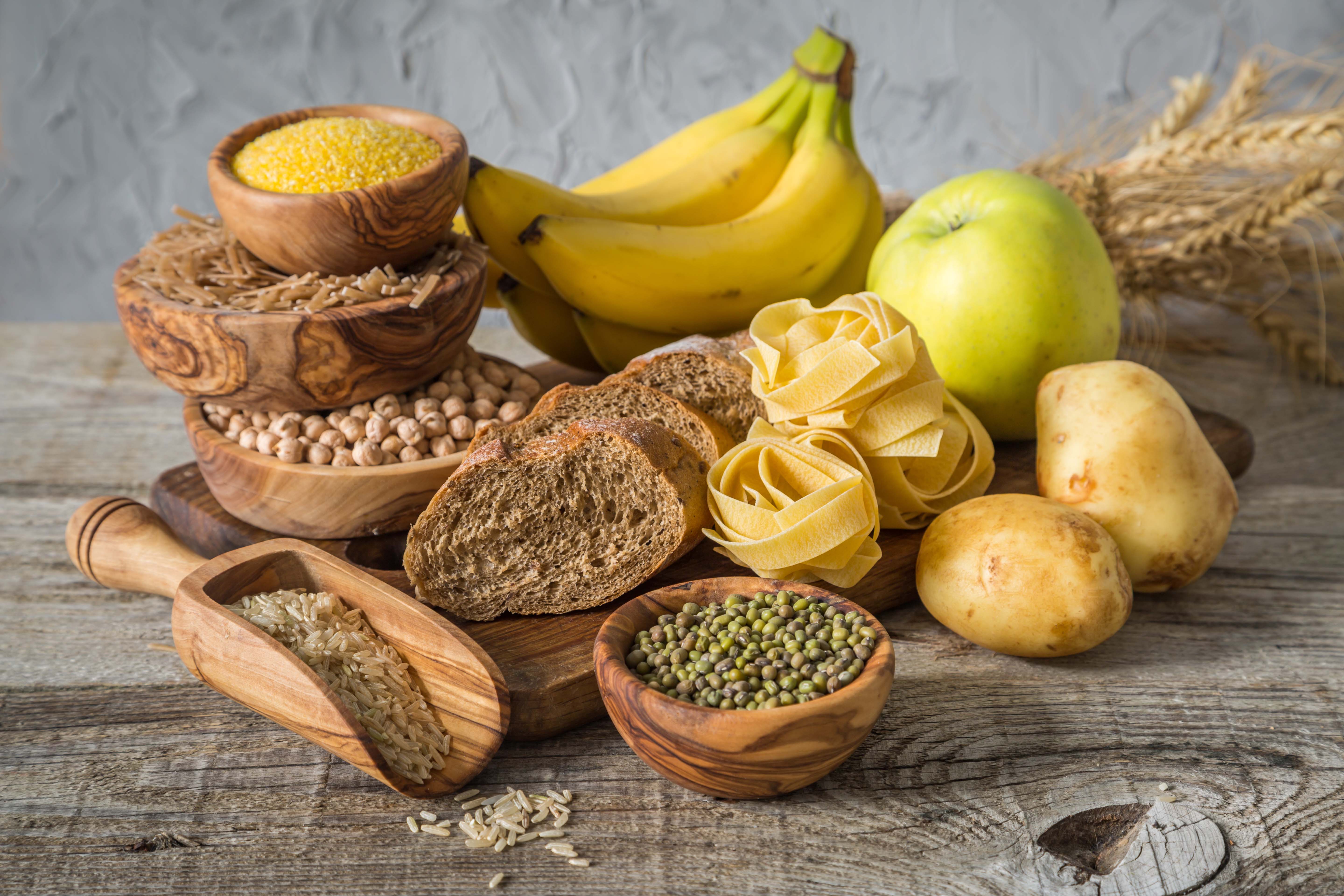Carbohydrates & Fats: Exercise Fuel!
June 23, 2017

Carbohydrates & Fats
During physical activity the muscles use the chemical energy of nutrients to generate the mechanical process. This process is regulated by many different factors of enzymatic and hormonal origin. The nutrients that are considered the main fuels during exercise are the carbohydrates and fat. The muscles burn a mixture of these two nutrients with oxygen during the aerobic metabolic process. One of the most controversial aspects in the understanding of this process is the relationship between the nature, duration and intensity of the exercise. As well as the relative contribution of fat and carbs in the energy production. In low intensity exercises, when the energy demand is not so high, the fat is considered the most important fuel, meaning that the muscles use a mixture more rich in fat for energy production.Exercise Fuel!
 When the energy demands increase, like in moderate exercises, the mixture is balanced between fat and carbs. In this situation the L CARNITINE can play an important role, increasing the delivery of fat (fatty acids) to the muscle, increasing the fat burning process.
During intense exercise, the carbs become the main fuel source, and in even more intense exercise, the carbs may be the only fuel in the burning process.
The understanding of this change of fuel depends upon the regulatory mechanism. When the exercise is of low intensity this process is supposed to be long duration. Therefore the muscles use the source of energy that is stored in higher amounts. Which is, fat. The fat metabolism is slower but, once the energy demand is low, there is no need for a faster energy production.
When the energy demands increase, like in moderate exercises, the mixture is balanced between fat and carbs. In this situation the L CARNITINE can play an important role, increasing the delivery of fat (fatty acids) to the muscle, increasing the fat burning process.
During intense exercise, the carbs become the main fuel source, and in even more intense exercise, the carbs may be the only fuel in the burning process.
The understanding of this change of fuel depends upon the regulatory mechanism. When the exercise is of low intensity this process is supposed to be long duration. Therefore the muscles use the source of energy that is stored in higher amounts. Which is, fat. The fat metabolism is slower but, once the energy demand is low, there is no need for a faster energy production.
 When the exercise intensity is higher, in the transition from moderate to intense exercise. The muscles start to change the metabolism to a faster process of energy production. Increasing the carbs burning metabolism.
As the carbs stores (muscle glycogen) are of a limited amount, the more intense exercise duration may be limited by this factor.
One of the training effects is the metabolic adaptation of the muscles. Allowing more and more fat utilization and the sparing of the carbs reserves to energy production. This glycogen sparing effect is also enhanced by the L CARNITINE supplementation. This kind of adaptation can increase the exercise endurance for example in the long distance running as well as a better effect of the fat burning process in different kinds of exercise.
REFERENCES
Biochem Soc Trans. 2003 Dec;31(Pt 6):1270-3
Sports Med. 2008;38(3):213-38
When the exercise intensity is higher, in the transition from moderate to intense exercise. The muscles start to change the metabolism to a faster process of energy production. Increasing the carbs burning metabolism.
As the carbs stores (muscle glycogen) are of a limited amount, the more intense exercise duration may be limited by this factor.
One of the training effects is the metabolic adaptation of the muscles. Allowing more and more fat utilization and the sparing of the carbs reserves to energy production. This glycogen sparing effect is also enhanced by the L CARNITINE supplementation. This kind of adaptation can increase the exercise endurance for example in the long distance running as well as a better effect of the fat burning process in different kinds of exercise.
REFERENCES
Biochem Soc Trans. 2003 Dec;31(Pt 6):1270-3
Sports Med. 2008;38(3):213-38








